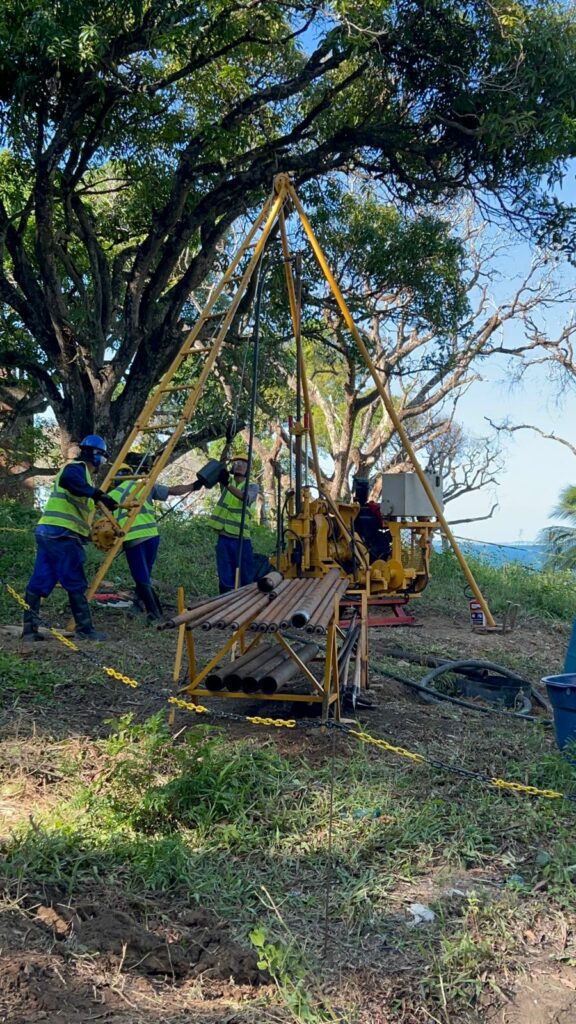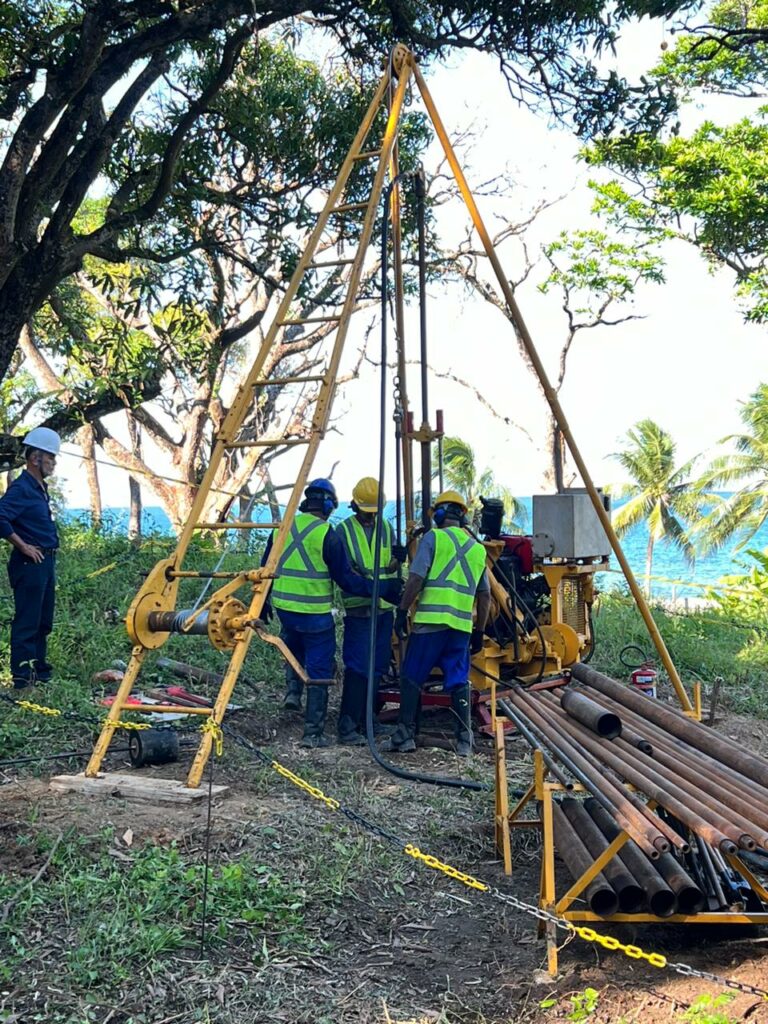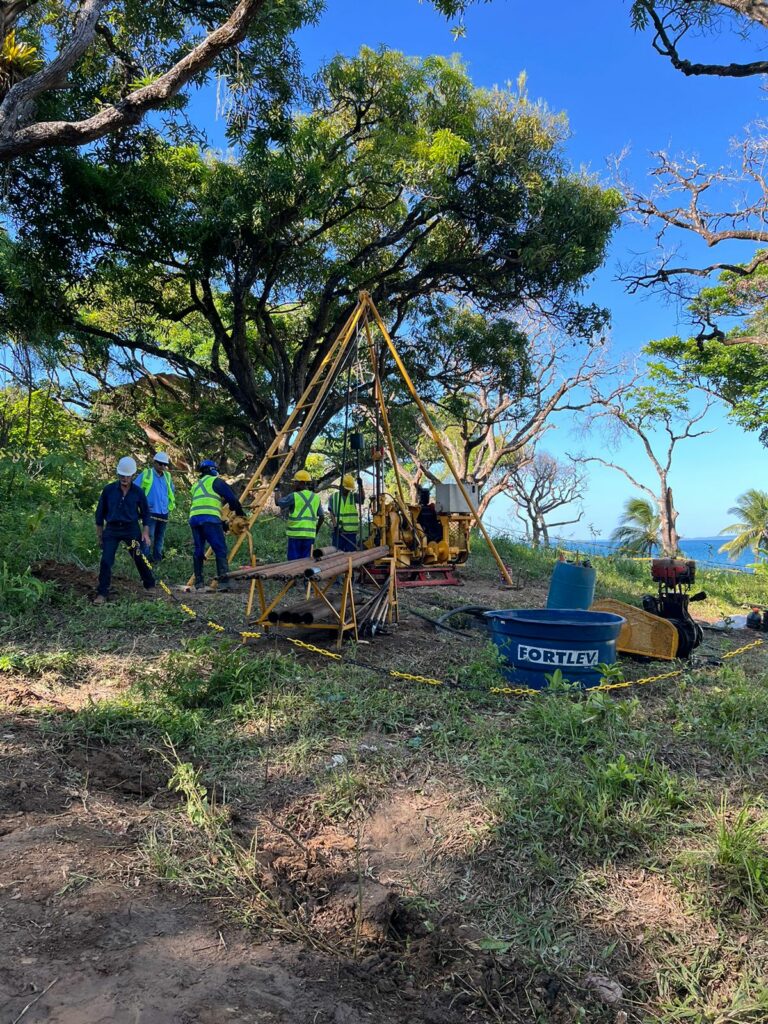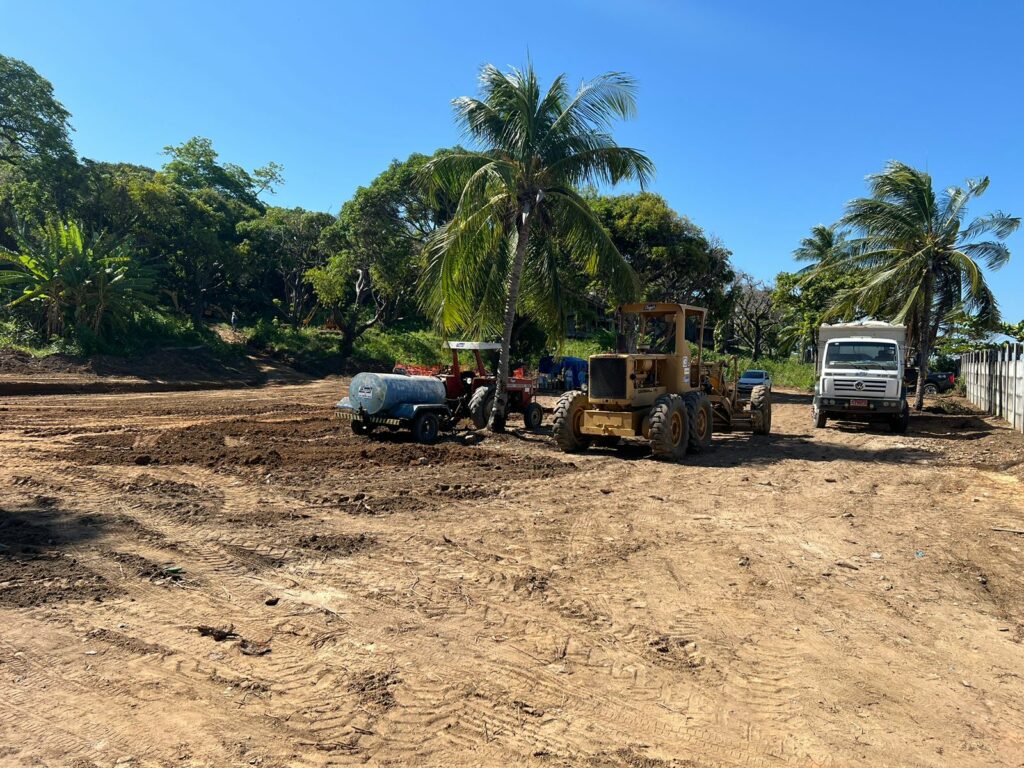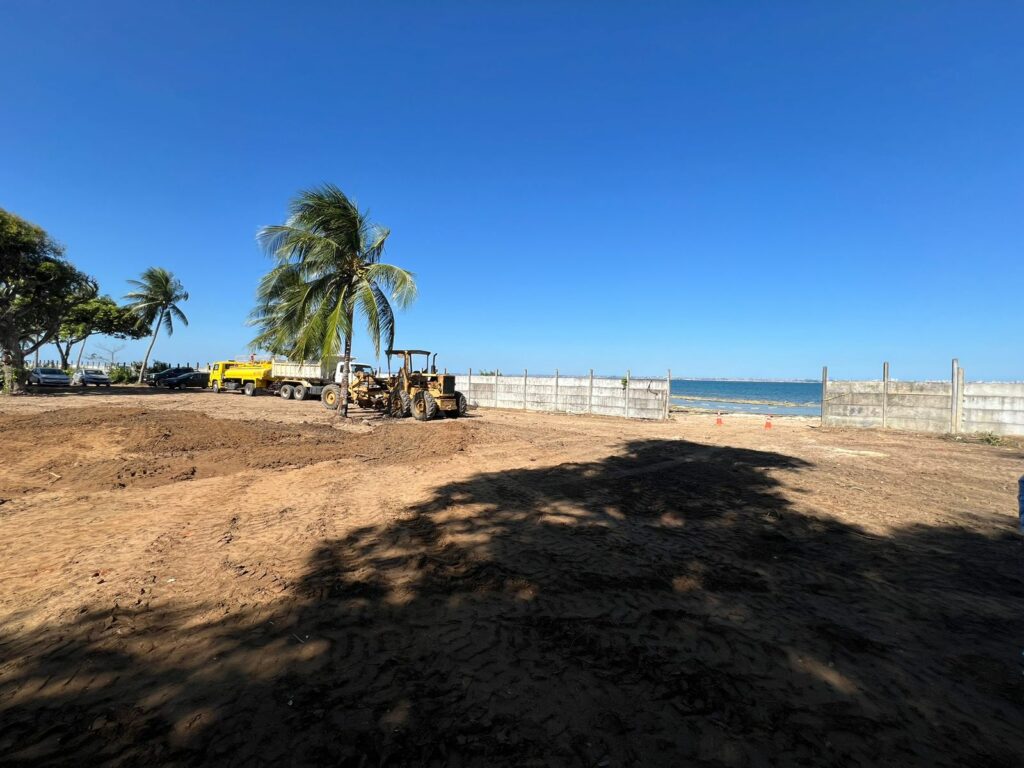This Wednesday (31st), the Salvador-Itaparica Bridge Concessionaire began the surveying phase with an onshore drill in the municipality of Vera Cruz. This is a fundamental step in understanding the characteristics of the soil and defining the foundation of the bridge. During this phase, soil samples will be taken with the help of a drilling machine at the exact location where each of the piers will be located. These samples are then sent to the laboratory. There, a detailed analysis of the collected material is performed. The onshore drilling will consist of two drill holes in Vera Cruz and one in Salvador.
According to the work plan, once the onshore survey has been completed, the marine survey will begin. In this phase, which is expected to begin in March, rigs will be used in areas of the bay that are considered shallow waters, up to 10 meters deep. Soon after, the survey will begin in deep waters, with a depth of more than 10 meters, using barges equipped with drills to collect samples from the seafloor. The entire survey process is expected to be completed by December 2024. The construction sites will begin in early 2025.
“Today, we’ve taken a big and important step towards turning this new mobility solution that will expand Bahia’s future prospects. With the support and fundamental work of the State Government, we are moving forward in this project that will boost the economy and be a symbol of progress in the diplomatic relations between Bahia and Brazil with China,” commented the President of the Concessionaire, Cláudio Villas Boas.
The Salvador-Itaparica Bridge Highway System will be a new vector of income distribution and will boost the economy of the entire State of Bahia, generating seven thousand jobs. In about 250 municipalities, 10 million inhabitants will benefit from the project. This large investment will stimulate economic development by attracting new businesses in areas such as logistics, industry, commerce, services and real estate. The new system will also boost tourism in Bahia, as the distance between Salvador and important tourist areas of the state, such as the Sul and Baixo Sul (South and Deep South parts of the state), will be reduced by more than 100 km.
In addition to the 12.4-kilometer oversea bridge, the largest in Latin America, new access roads will be built in Salvador and Vera Cruz. In the capital, between the neighborhoods of Calçada and Água de Meninos, there will be a new 4 km-long structure made up of a series of overpasses and two new tunnels that will run parallel to those of the Via Expressa (expressway). In Vera Cruz, the flow of vehicles coming from the bridge will be redirected to a new 22 km expressway, which will be built in the Mar Grande region. This expressway will extend up to the vicinity of Cacha Pregos. Finally, an 8 km section of the BA-001 will be doubled from Cacha Pregos to the beginning of the Funil Bridge, marking the end of the concessionaire’s area of operation.
This new investment, amounting to approximately R$ 9 billion, stems from a public-private partnership (PPP) between the Government of Bahia and a Chinese consortium formed by two large groups, which are among the largest globally in the construction and infrastructure sector: China Railway 20th Bureau Group Corporation (CR20) and China Communications Construction Company (CCCC). The contract, which was signed in November 2020, grants a 35-year concession for the construction, operation and maintenance of the facilities.
